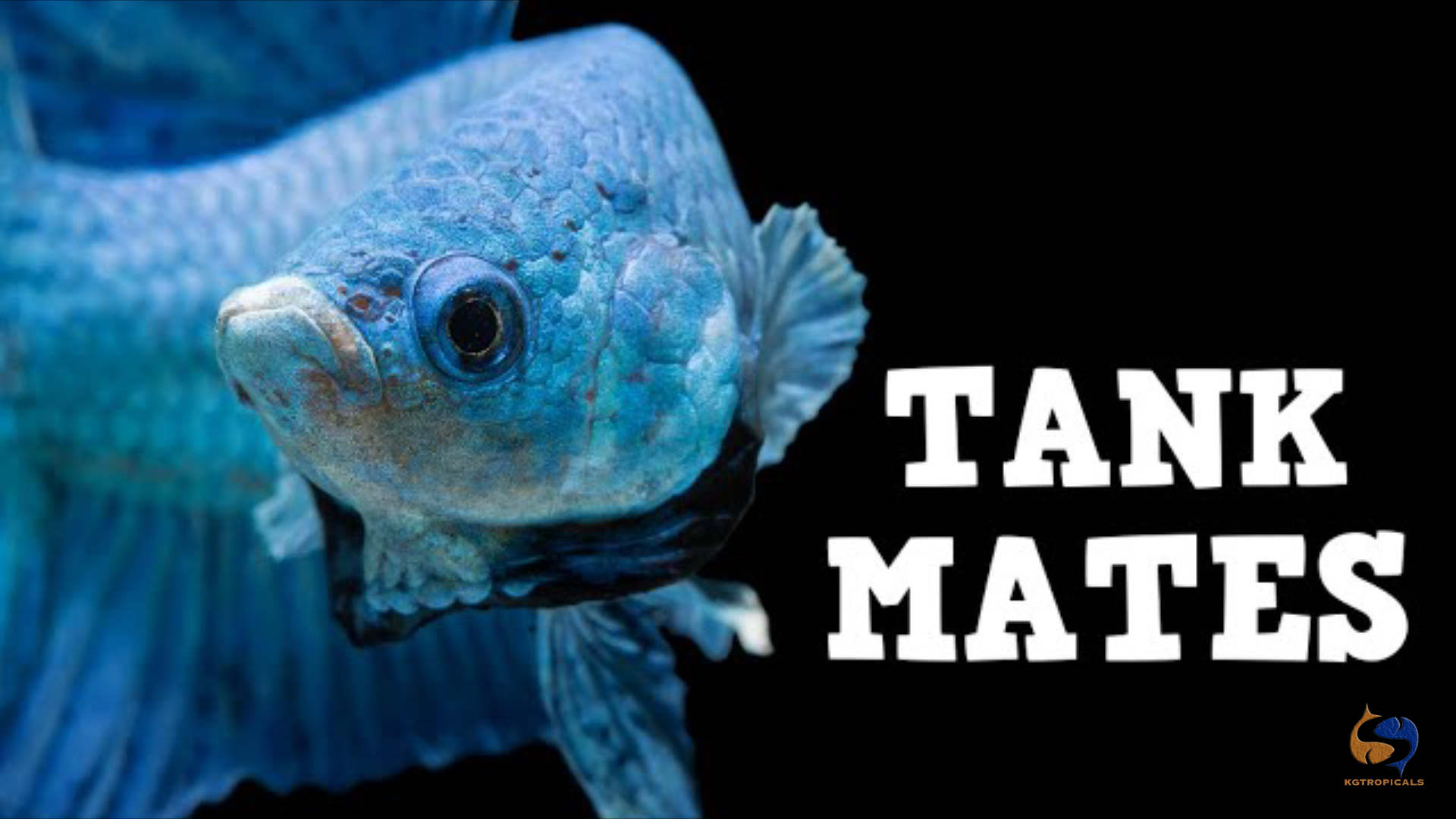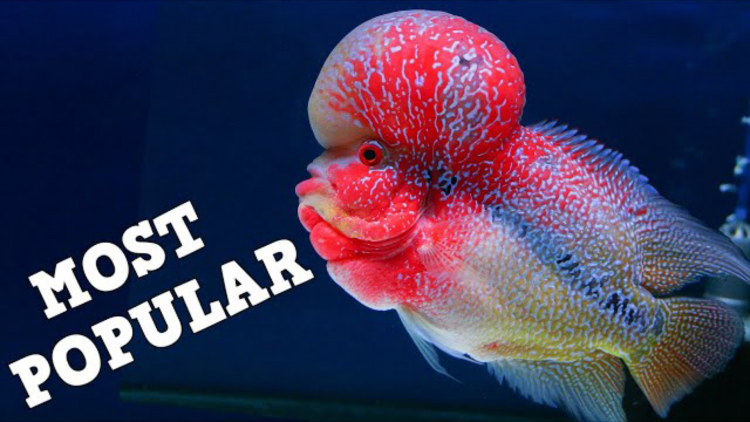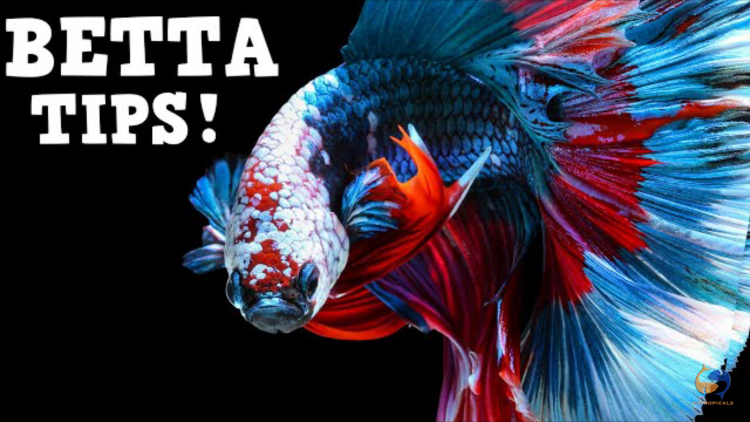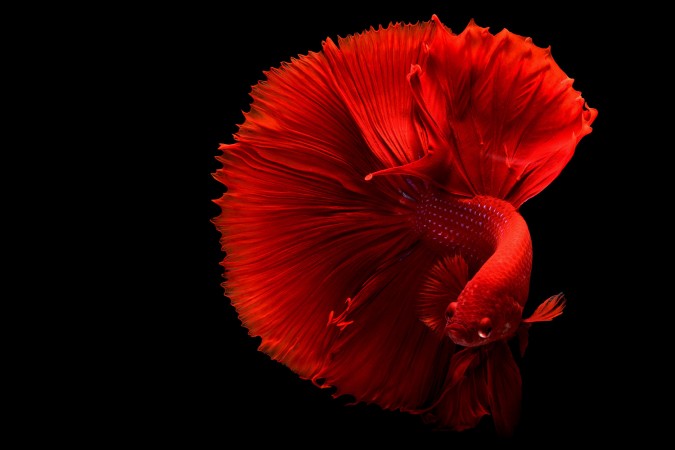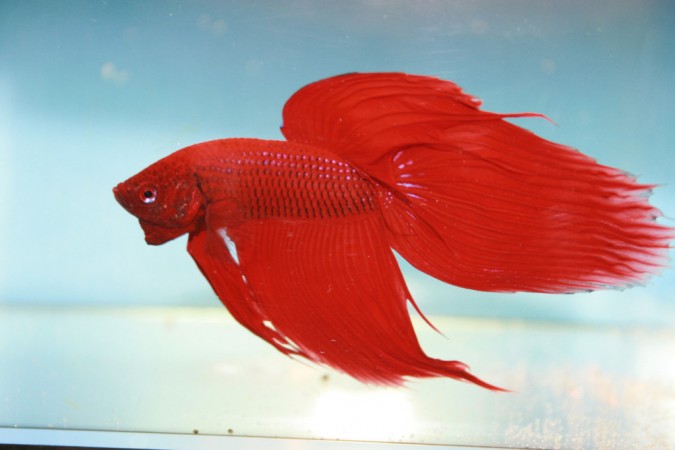- Name:
Twin Tail Betta
(View AKA's) - Family: Belontiidae
- Species: Betta
- Scientific Name: Betta splendens
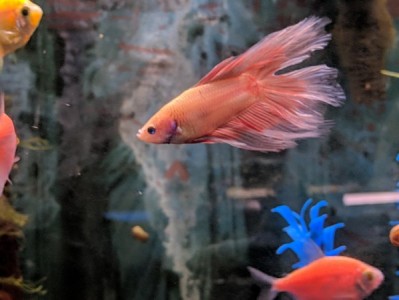

General info about Twin Tail Betta
The name “Fighting Fish” is due to the fact that males will often fight each other to death, as a matter of fact, in some Asian countries this species has been bred just for fighting purposes. During their fights they exhibit interesting behaviors, when one goes to the surface for air, its rival waits and doesn’t take advantage of it, also, if there is a third male present, instead of joining the fight it will wait until it is over and will then fight the winner. In the wild these fish are green and brown with short rounded fins. Nowadays, there are plenty of different varieties in pet stores that have been developed from the wild one, these varieties include many different colors and many different types of fins. The Twin Tail fin variety has a split tail that looks like it has 2 tails.
To keep these fish in captivity, water temperature should range from 75ºF to 86ºF and water pH should be between 6-0 and 8.0. The tank should be dimly lit, have hiding places, floating vegetation for cover and a dark substrate. It should also have a cover to avoid jumps, however, it shouldn’t be filled to the top in order to allow the fish to go breathe in the space between the cover and the water. It is best to keep them alone in a tank, however, they can be kept in a community tank as long as the tankmates are carefully chosen, they can’t be similar to them in color nor in shape. Females can be kept in groups but males should never be kept together, keeping more than one male per tank will lead to fights to the death between them. A 3 gallon aquarium is enough for a single individual, however, a 10 gallon tank or more is best.
Twin Tail Betta Diet & Nutrition
This species is omnivorous but has a mainly carnivorous diet. In the wild it feeds on invertebrates and will sometimes eat algae. In captivity, they can be fed with dried, live and frozen foods. They should be fed a high protein diet.
Determining Sex of Twin Tail Betta
Males are more colorful and have longer fins than females.
Breeding & Spawning Twin Tail Betta
The male starts by building a nest, he will then release his milt at the same time the female releases her eggs, then they will put all of the eggs in the nest. The female should be separated after the eggs are fertilized because she may eat them, the male should stay with the eggs since he will guard them until they become free swimming. The eggs hatch in 24 to 48 hours but the fry remain in the nest for 3 to 4 days feeding on the yolk sac.
Twin Tail Betta Origin
This species can be found in Thailand.
Original Detail
| Name | Species | Family | Scientific Name | More Detail | Added by |
|---|---|---|---|---|---|
| Twin Tail Betta | Betta | Belontiidae | Betta splendens | The name “Fighting Fish” is due to the fact that males will often fight each other to death, as a matter of fact, in some Asian countries this species has been bred just for fighting purposes. During their fights they exhibit interesting behaviors, when one goes to the surface for air, its rival waits and doesn’t take advantage of it, also, if there is a third male present, instead of joining the fight it will wait until it is over and will then fight the winner. In the wild these fish are green and brown with short rounded fins. Nowadays, there are plenty of different varieties in pet stores that have been developed from the wild one, these varieties include many different colors and many different types of fins. The Twin Tail fin variety has a split tail that looks like it has 2 tails.
To keep these fish in captivity, water temperature should range from 75ºF to 86ºF and water pH should be between 6-0 and 8.0. The tank should be dimly lit, have hiding places, floating vegetation for cover and a dark substrate. It should also have a cover to avoid jumps, however, it shouldn’t be filled to the top in order to allow the fish to go breathe in the space between the cover and the water. It is best to keep them alone in a tank, however, they can be kept in a community tank as long as the tankmates are carefully chosen, they can’t be similar to them in color nor in shape. Females can be kept in groups but males should never be kept together, keeping more than one male per tank will lead to fights to the death between them. A 3 gallon aquarium is enough for a single individual, however, a 10 gallon tank or more is best. |
PalaciosAn |


